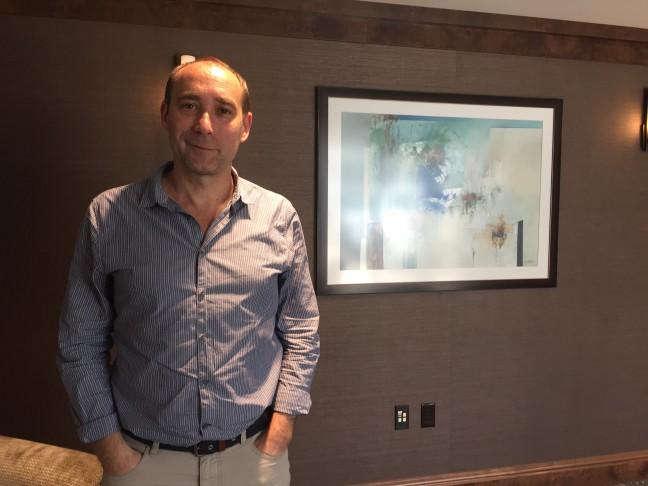The only journalist that has covered all post-Cold War international tribunals, Thierry Cruvellier has sought to shed light on the troubling reality of mass political crimes and their perpetrators.
Cruvellier has been a reporter for 25 years and has authored two books on the Rwandan genocide and the Khmer Rouge Tribunal. He is currently working on a book on the extreme circumstances of the conflict in Sierra Leone. He is on campus this week to give several talks on Rwanda, Cambodia and Sierra Leone and sat down with The Badger Herald to speak about his experiences.
For Cruvellier’s generation, Rwanda was a defining story. The establishment of the Rwanda Tribunal was their Nuremberg, he said.
Covering the Rwanda Tribunal paved the way for Cruvellier’s specialization as a war crimes reporter.
Cruvellier kept going back and covering tribunals because he said they offer writers a unique lens through which they are able to address a whole history of a nation through the lives of individuals. Tribunals are rich territory for writers – offering a range of issues and characters, he said.
But, there is a certain heaviness that comes with the exposure to excessive human violence and cruelty, he said.
“Once you start covering war crimes…come to the realization that what’s most frightening about it is that these crimes are committed by human beings like you and me,” Cruvellier said. “They’re not psychopaths, they’re not monsters. They’re criminal life corresponds to a particular period of time in exceptional circumstances. Therefore, the questions they raise are questions about ourselves.”
This realization and the questions raised about humanity can be haunting.
The humanity of the perpetrator is troubling because it becomes part of the writer’s experience while covering these trials, he said.
In addition to the troubling testimonies, tribunals are lengthy and can go on for years, which journalists and writers must be prepared for, Cruvellier said.
“Boredom, disillusions, and the mediocrity that comes with it, only if you can bear this, you can get the worth of the story,” he said.
Cruvellier thinks the international justice system is currently in crisis because the political environment is less conducive to supporting accountability and because the tribunals have not worked well. Additionally, they are worsening in terms of their efficiency and what is produced.
“[People must understand] how little criminal courts can do and to have much more modest expectations from the spectacular and high profile institutions and realize that they can’t achieve many of the goals they claim they’ll be able to address,” he said. “Bringing peace, reconciliation, closure for the victims, all these claims…courts cannot do.”
But, at the same time, he said the idea behind the creation of that system has never been more present in the public domain.
Cruvellier said ending crimes against humanity was an ideal, but not a reality of mankind. But, he disagrees that people have become increasingly indifferent and said rather, people remain just as incapable of stopping the events.
There’s more talk in the contemporary world on atrocities that are being committed than ever before, but the powerlessness remains, he said.
“What saddens us is our complete incapacity to prevent and to protect and to react, because the politics of our societies don’t change,” he said. “And this tendency of human societies to go to war doesn’t change either.”
Cruvellier will speak at Elvehjem at 7:30 p.m. Thursday and will participate in a conversation Friday morning.


